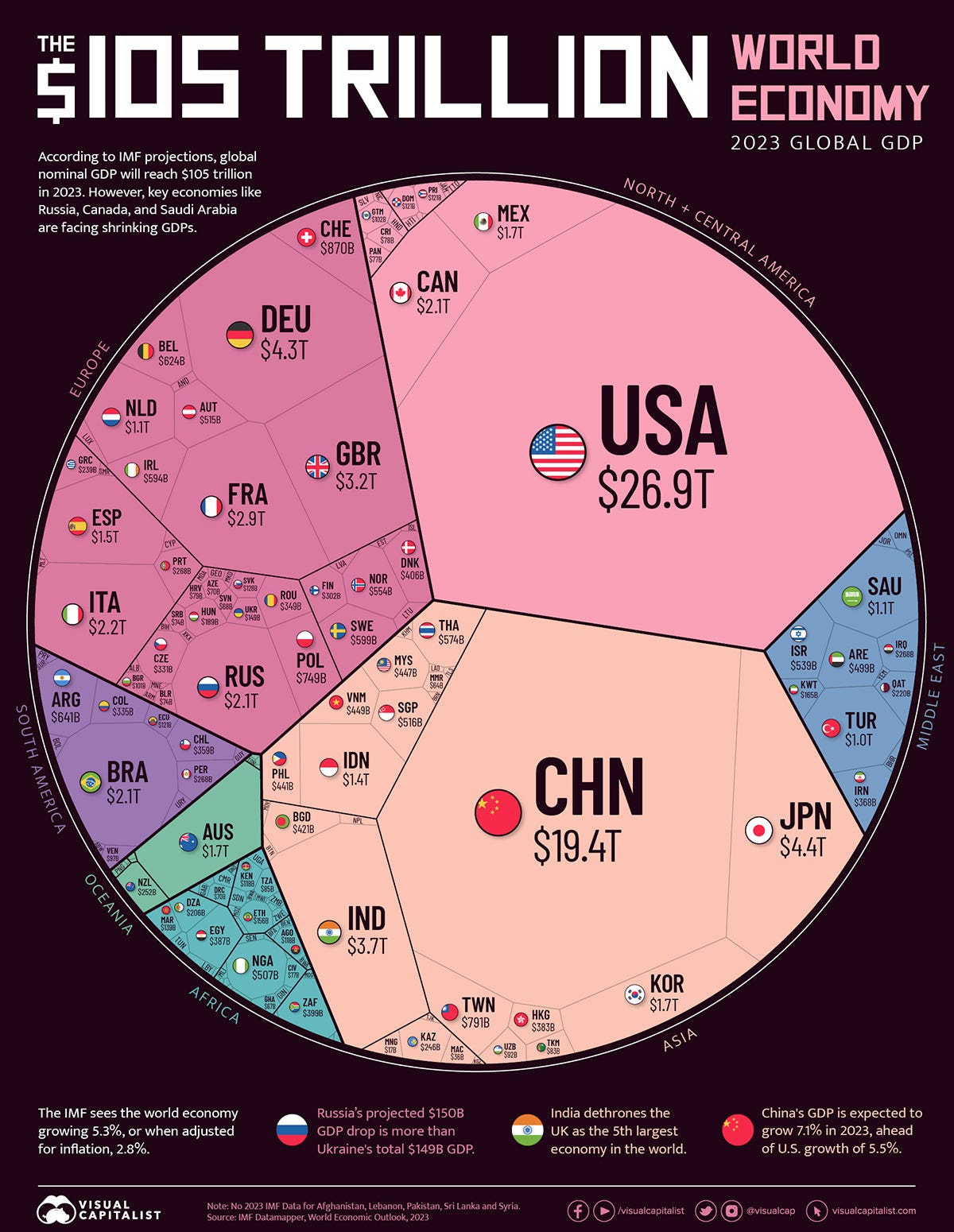Thing 16
“Big” fish in a small pond
Listen instead
AI-generated narration using a synthesized version of Timi's voice
I never paid attention to this category of stuff (the global economy) until relatively recently.

The $105 Trillion World Economy by Visual Capitalist
I find the image above very interesting. It is not particularly groundbreaking information, but it’s striking to see the data laid out in this way. For example — Mexico’s economy is bigger than the top 3 economies in Africa (Nigeria, Egypt & SA) combined, despite being only a third of their population.
Some (Nigeria focused) notes:
- It is very clear that what we have is a relatively very small pond, especially given our population size.
- The small size of the economy itself is a barrier to growth. In an environment where people struggle with basic needs like electricity, healthcare, and food, there is limited demand for a range of services and products. This economic constraint means that many skills and talents that would thrive in larger, more prosperous markets hold less value locally.
- This limits both the number of successes and how far they can go. In places where electricity, transportation, and other modern conveniences are abundant, hundreds — and even thousands in the U.S. — of millionaires are made every day. There’s a strong link between the potential for individual wealth and a country’s overall economic health.
- Our “biggest” fishes confuse and disappoint me. They seem content with their local champion status, even if it means holding others down to stay on top. What’s most surprising is the lack of competitive pride. Despite being well-traveled and aware of true wealth standards, they don’t seem bothered that, even with their strong government ties, they don’t measure up to…I don’t know…the average successful tech millionaire in the West. Where’s the drive they show at home when comparing wealth? Why does all that big man energy fade when they step outside Nigeria and face real global wealth?
- The only real solution is to grow the size of the pie. This image reinforces my belief that we need to Build for the world. Expanding the economic base requires engaging in global trade, and with the internet making the world much smaller, this type of trade is more insulated from local economic and political constraints. Growth in this context is driven by innovation and hard work. As I wrote in the article, “If you can be successful at building for the world that’s already willing to pay, then maybe you’ll have way more resources to build for the world that can’t pay (yet).”